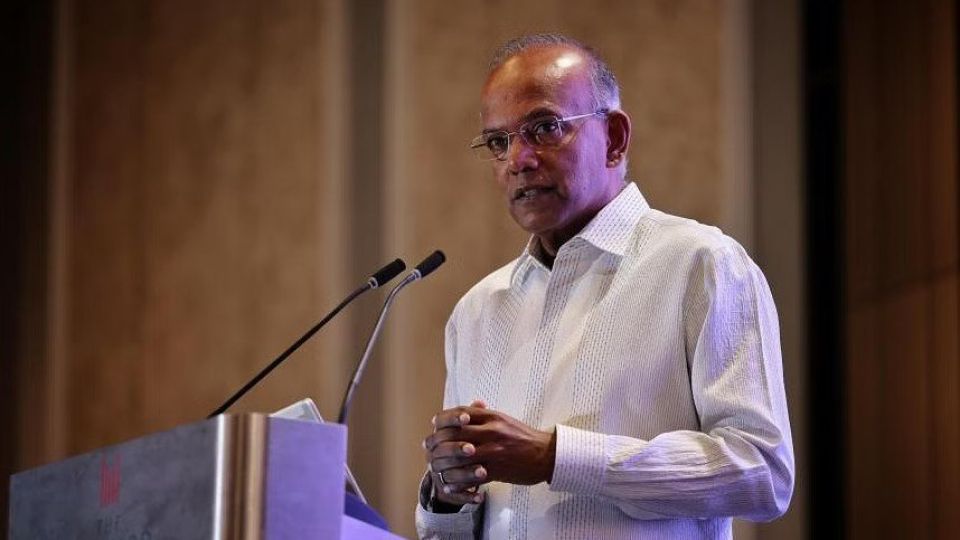January 16, 2024
SINGAPORE – Small states like Singapore need to come together to speak up when big powers violate international law and practise double standards, Law and Home Affairs Minister K. Shanmugam said on Jan 15.
This is because in a world without international law, the main principle will be “might makes right”, and the interests of small states are likely to suffer.
“Alone, our words and actions may not carry much weight. But, working together, we can have some impact,” he said.
Mr Shanmugam was giving the keynote address at a conference organised by the National University of Singapore’s Centre for International Law.
The 200 participants included judges from international courts and tribunals, academics, government officials, embassy representatives and practitioners from local and regional law firms.
In his speech, Mr Shanmugam touched on the importance of international law, the reality of international power dynamics, and what small states can do when big powers breach international law.
He noted that since the fall of the Soviet Union in 1991, the international order has been rooted in the dominance of the United States and multilateral institutions such as the United Nations and the International Monetary Fund.
Today, serious questions are being asked if this order is “unravelling”, with changes that have taken place over the last decades, and accelerated by the ongoing wars in Ukraine and Gaza, said Mr Shanmugam.
Russia’s invasion of Ukraine in February 2022 was the largest attack on a European country since World War II. Hundreds of thousands from both sides have been killed or wounded.
Nearly 24,000 people in Gaza have died in the war between Israel and Hamas. The Palestinian militant group had stormed into southern Israel on Oct 7, 2023, prompting retaliatory air strikes and a ground assault by Israeli forces.
Mr Shanmugam cited an article that said multilateral institutions are losing credibility, as they are often “used and abused” by advanced economies to serve their own interests.
For example, the UN suffered a blow to its reputation in the eyes of developing countries that perceive double standards in the actions of some Western countries for supporting Ukraine against Russia, but blocking or abstaining from resolutions on an immediate humanitarian ceasefire in Gaza.
With these observations, there is a sense that much of the world order is in some crisis, said the minister.
Mr Shanmugam said small states are the most vulnerable in a world without a system of rules and principles to govern the behaviour of states.
With international law, small states have a “fighting chance to carve out their place in the world”.
A rules-based international order recognises the sovereign equality of all states, enshrines fundamental principles such as the peaceful settlement of disputes, and seeks to provide a stable environment for international trade and investment.
When big powers breach international law
Mr Shanmugam said big powers often want to be seen as responsible actors, and often lecture others on complying with international law. “At the same time, the reality is that, not infrequently, big powers act inconsistent with international law, when principles of international law conflict with their national interests,” he said.
The result – a situation of “Do as I say, not as I do”.
He noted that the US is generally seen as a benign power, and its role as global policeman has helped inject a measure of stability into the world. This has benefited many countries, especially smaller ones such as Singapore.
But the US has also been willing to act contrary to its international obligations to protect its interests.
One example was the US invasion of Grenada in 1983. Mr Shanmugam said this was condemned by many states at the UN, including Singapore, as a violation of international law.
He also pointed out that in the 1980s, the US supported military and paramilitary activities against the Nicaraguan government, and refused to participate in a case brought by Nicaragua before the International Court of Justice.
The court held that the US’ actions were in breach of international law.
When big states act contrary to international law, it is important for small states to come together to call them out, said Mr Shanmugam.
Restoring confidence in a rules-based international order is critical to Singapore’s survival, he added.
“That is why Singapore is assiduous about acting consistently with our international law obligations, and doing what we can to uphold international law,” he said.
For example, Singapore has taken a firm stand against Russia’s invasion of Ukraine, including voting in favour of several UN resolutions condemning Russia’s aggression against Ukraine.
In the context of the Israel-Hamas war, Singapore has condemned Hamas’ attacks as acts of terror. At the same time, the Republic has voted in favour of resolutions that were overwhelmingly adopted by the UN General Assembly, including one calling for an immediate humanitarian ceasefire in Gaza.
On a more optimistic note, Mr Shanmugam said it was telling that both Russia and Israel have sought to justify their actions under international law, rather than completely ignore its existence.
“It’s an acknowledgement that international law matters. That a poor track record of compliance can lead to a loss of legitimacy and credibility, and isolation on the world stage, even for a big power like Russia,” he said.

